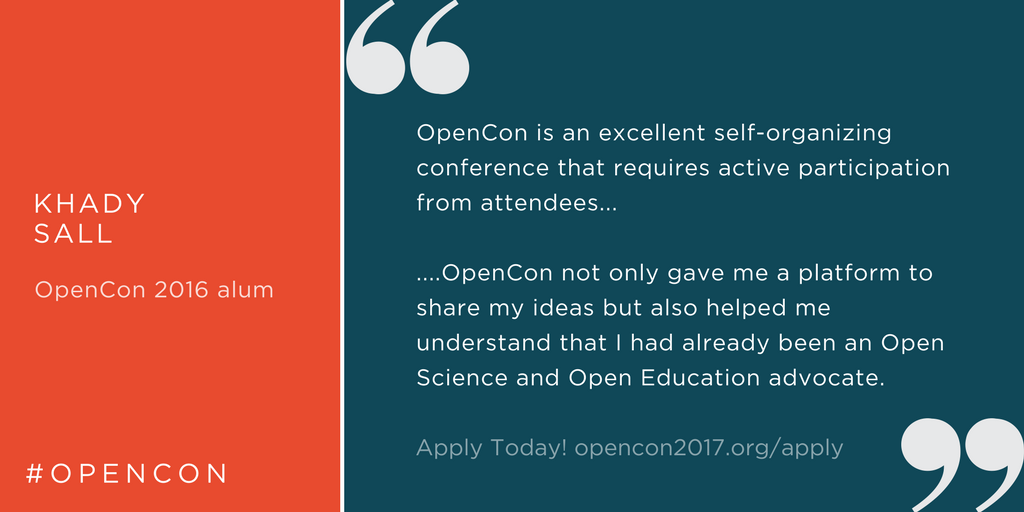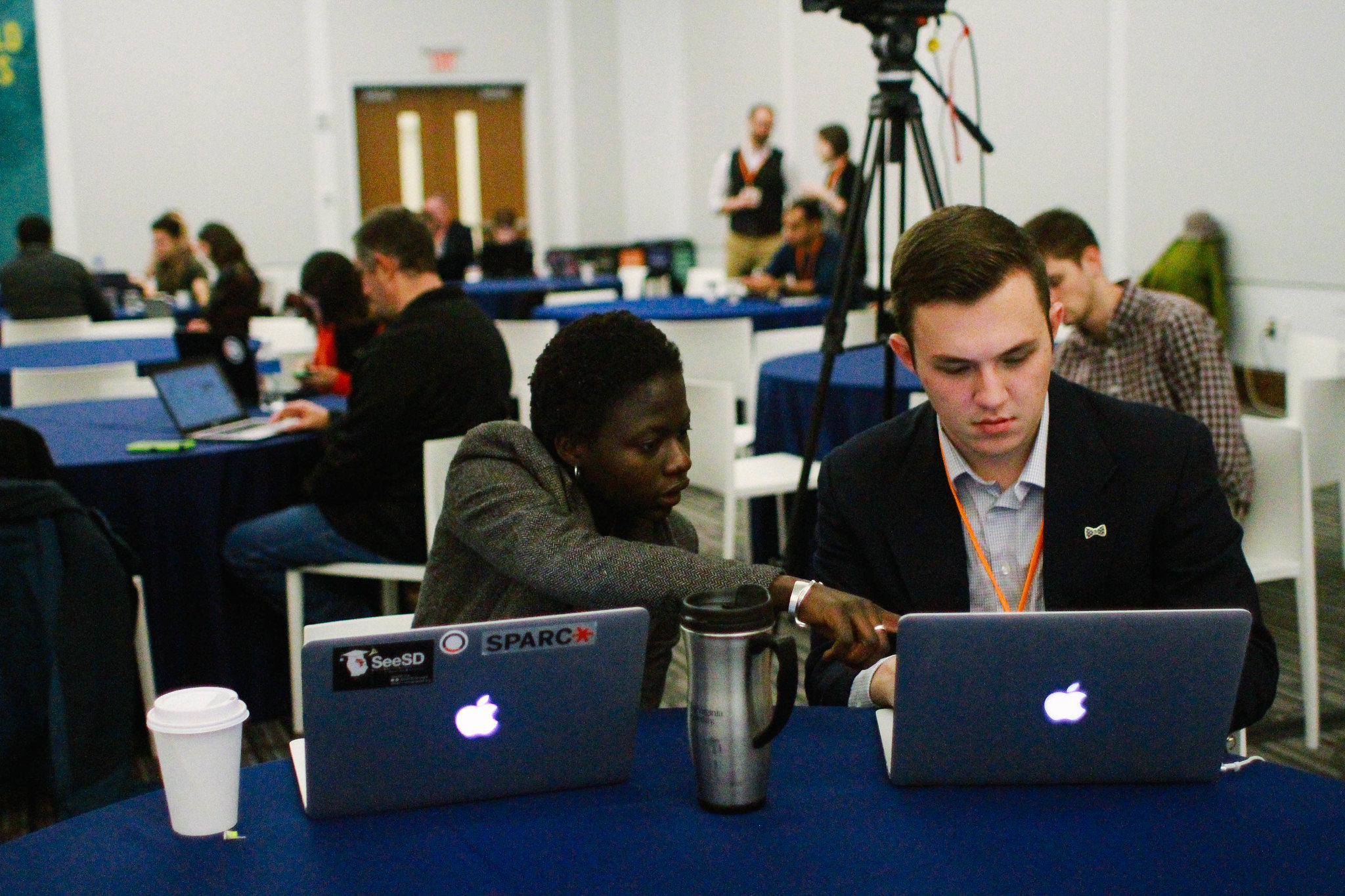I get easily bored at conferences.
Especially if they are lecture-based and speakers are talking about their published work. I did my K12 education in Senegal, West Africa and it was not hands-on. We just sat and listened all day. After I moved to Europe, and later the US, my education became more interactive. Now, I have developed an utter dislike against formats that aren’t interactive. Conferences should be organized in a way that encourages people to talk to each other and be proactive. Many scientists I know (including myself) are introverts. I do not like talking just for the sake of talking: I need a stimulus from the environment to really participate.
When I arrived in Washington DC to attend OpenCon 2016, I had limited knowledge about OpenCon itself. I just expected that it would be like any other conference—that I would be a passive attendee as usual and would talk a bit about SeeSD, the STEM education not for profit I started in Senegal. I was also very confused about the program and was not really sure what was going to happen during the conference. I am glad I was wrong. OpenCon is an excellent self-organizing conference that requires active participation from attendees. The meeting started with a keynote talk by Brewster Kahle, the founder of Internet Archive. He walked us through the concept of a “decentralized Internet”, something I was not very familiar with, but that I fully embraced now and even advocate for.
My favorite part of the conference was the story circles: a storytelling session where conference participants were divided into small groups and each group member tells their story by answering: what brought them to OpenCon? In my case, I applied to OpenCon because I cared about diversity in STEM (Science Technology Engineering and Mathematics) and because I believed the main barrier stopping African communities from fully embracing STEM is cultural relevance. To bring that cultural relevance, it is imperative to design Open Educational Resources using local languages.


